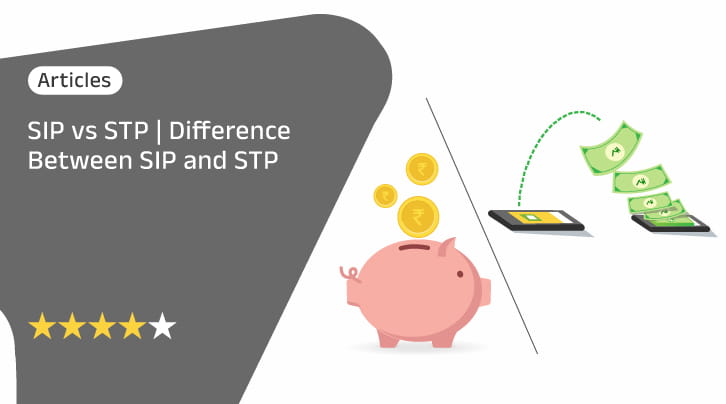-
Our Products
Our FundsFocus Funds
-
Self Care
Self-ServiceFind InformationWays To TransactPartner Solutions
-
Downloads
- Learnings
- About Us
-
More
-
Shareholders
-
Shareholders
-
Updates
-
-
SIP Calculators
- Back
-
Shareholders
SIP vs STP | Difference Between SIP and STP

Sep 02, 2024
5 min
4 Rating
Systematic investment plans (SIPs) and systematic transfer plans (STPs) are the two distinct yet complementary strategies of mutual fund investment avenues, helping investors manage their various financial goals and risk appetites. These two investment plans cater to providing a simplified investment process in mutual fund schemes, promoting feasibility and creating stress-free notions.
It’s time to decipher their unique roles in the investment landscape and how significant these investment avenues are with respect to mutual fund investments. Be ready as we unravel the SIP vs. STP comparison.
Unveiling a systematic investment plan (SIP)
SIP involves investing a fixed amount at periodic intervals, such as monthly, quarterly, or yearly. This strategic investment method empowers investors to diligently participate in the market systematically, irrespective of its unpredictable fluctuations.
By spreading investments over time, SIPs can potentially mitigate the impact of market volatility on your mutual fund investments, leveraging the concept of rupee cost averaging. The rupee cost-averaging process involves purchasing more units when prices are low and fewer units when prices are high.
The pull of SIP lies in the habit of consistent investing, promoting financial discipline, and potentially reaping the benefits of compounding over the long term.
Deciphering a systematic transfer plan (STP)
STP functions as a strategic tool for managing the transfer of a predetermined amount from existing mutual fund investment schemes. This investment plan entails a transfer from one scheme, known as the source scheme, to another scheme, known as the target scheme, within the same mutual fund house.
This strategic transfer approach at periodic intervals can systematically manage the amount while also assisting with diversification, risk management, and capital appreciation.
For example, you can make regular transfers of a predetermined amount from an equity fund to a debt fund. This strategy can enable diversification as you include a new asset. Plus, investing in debt funds can lock in that amount, ensuring that profits from equity funds are less exposed to market fluctuation, which can consequently help in risk mitigation.
STP’s appeal lies in its flexibility, allowing investors to tailor their investment strategies according to their financial requirements.
Summarizing the SIP vs. STP
|
SIP |
STP |
Meaning |
SIP is an investment avenue that invests specific amount at periodic intervals. |
STP is an investment avenue that transfers specific amount from one scheme to another within the same fund house. |
Objective |
It helps in long-term wealth creation. |
It helps in portfolio diversification and risk management. |
Asset allocation |
It invests in single mutual fund scheme. |
It allows the transfer between different mutual fund schemes. |
Taxation |
There is no applicable tax on SIP investments. However, tax is applied to capital gains. |
Tax is applicable on the transfer amount as it is acquired after the redemption from the source scheme. |
Advantages |
Compounding power |
Portfolio diversification |
Conclusion
SIP and STP, though distinct in their objectives, serve as invaluable investment tools in an investor's toolkit. SIP fosters disciplined wealth creation through consistency, while STP offers the flexibility of periodic transfers, catering to a diversified portfolio.
Both tools can empower investors to craft comprehensive investment strategies aligned with their financial goals and risk appetites. These investment strategies can complement each other in an investor’s financial journey. Hence, understanding the nuances of SIP vs. STP can further help optimize the use of these significant strategies to achieve long-term financial aspirations.
Aditya Birla Sun Life AMC Limited/Aditya Birla Sun Life Mutual Fund is not guaranteeing/offering/communicating any indicative yield/returns on investments.
Mutual Fund investments are subject to market risks, read all scheme related documents carefully.





 1800-270-7000
1800-270-7000



